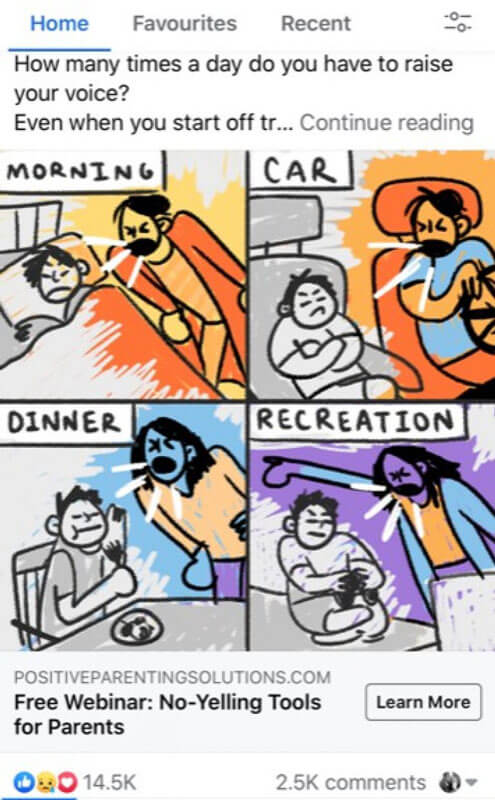Stop Treating Your Sales and Marketing Teams as Separate Silos
Let me be controversial: marketing is and always will be a servant of sales.
I can hear the cries of anguish from aggrieved marketers. But why they ask?
Because marketing has always been about creating qualified leads and sales’ job is to close them. The definitions for each discipline are simple.
Where do you think the saying “Sales are profit centres and marketing are cost centres” comes from?
It comes from either their ability or inability to attribute value. Marketing have always been perceived good at spending money and sales have always been good at making money. One is commercially-astute, the other seems less so.
This is where the traditional tension lies between the two.
This is also why so many rural business owners started out as sales people rather than marketers knowing sales revenue is the thing that kept their business alive. They made sales more of a priority than marketing because they knew sales is what mattered most.
However, marketing can contribute more and play a bigger role.
If your rural marketing machine is so good it can actually make sales superfluous as management guru Peter Drucker suggested in his brilliant book The Practice of Management. You might be able to achieve this using highly targeted lead capture and nurture digital campaigns using opt-in forms and lead magnets, building brilliant brands that defend margin, intelligent click funnels or a seamless e-commerce experience.

The example below for me is a masterclass in marketing that makes sales superfluous as Drucker suggests. It’s message fits and sells itself based by knowing and understanding what so many parents can relate to.
It uses a well known pain-point offering yelling parents a free webinar which gives value before asking for value in the form of a subscription to their online parenting course.

If your rural marketing team aren’t delivering qualified leads for your sales team to close, then greater accountability and scrutiny needs to be brought to bear. They need to know they have a professional responsibility to add value rather than their salaries being carried by the profits of their sales team counterparts.
The same goes for the sales team. Nothing breaks the heart of a truly engaged and invested rural marketer who works tirelessly to generate hard-fought leads when they are never followed up by sales. That’s a crime that cannot go unnoticed.
Where significant sales revenue comes unstuck most is when marketing and sales team don’t work together for the common cause.
All the predictable “them vs. us” symptoms turn up:
- turf wars and patch protection
- fiercely-defended fiefdoms
- ‘famous-person’ syndrome (“I know better than you”/”I add more value than you”)
- blame games
- poor communication flow
- lack of information flow and knowledge transfer
- competing alternate agendas (for their good vs. the common good)
- division and indifference in strategies
- department power and ego battles
- bickering that distracts from core business
The list goes on.
Rural sales team can help their rural marketing teams by feeding them with rich insights and intel from the front line. If they want sales support they so often ask for, they need to provide the ingredients to make it happen. Marketing can’t dream up material out of thin air if rural sales team are complaining about a lack of case studies, imagery or testimonials.
Marketing in turn can repay that favour to help your rural sales team by using these insights, intel and ingredients to create meaningful marketing material that creates a list of qualified leads for their sales team to follow up on.
The first thin you could you do to achieve this desired oneness is start by having both teams commit to a regular joint sales and marketing meeting. This is where all-important information flow and knowledge share occur. This is where the feedback loop gets fed.
Don’t separate sales planning and marketing planning meetings unless you want to reinforce the divide. You want joined-up thinking because knowledge shared is knowledge multiplied.
Report on both sides too: leads generated at what cost and leads converted and at what cost.
Dual reporting keeps each other party accountable for attribution and on an equal footing. This openness and transparency will foster greater goodwill, understanding and appreciation of what each other does and why.
Two brains have always better than one. You can have the best of both worlds.
Rural sales and marketing teams working together and feeding each other in perfect orchestration can be powerful and profitable, giving you a major competitive advantage over peers who can’t.
When competitors are fractured, divided and weak, you can be a united, formidable force.
Phil Jackson, champion coach of the Chicago Bulls and LA Lakers in his brilliant book Eleven Rings defined his levels of team development from a stage 3 team (“I’m great, you’re not”) into a stage 4 team (“We’re great, they’re not”). That’s what you need to see and hear.
My advice and experience having worked on both sides of the fence is to focus on centralised sales and marketing rather than seperate sales and marketing. If not, leads, revenue and important customer insights will fall between the stools costing you major money and multiple headaches.
Do the right thing and align the disciplines of sales and marketing. Each needs each other.
You’ll be glad you did.





